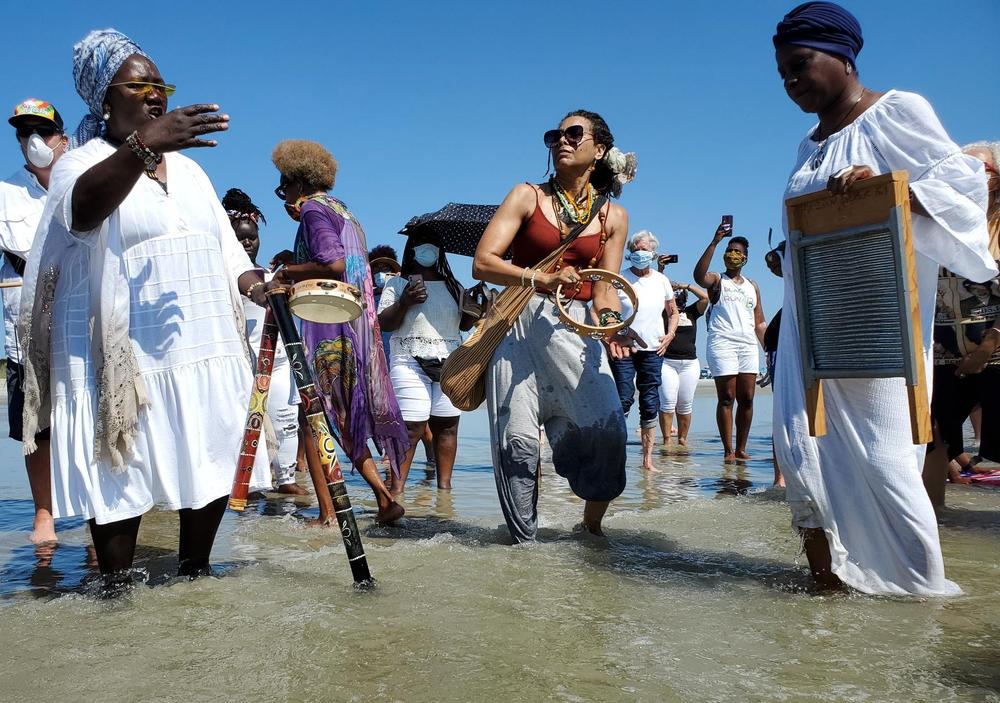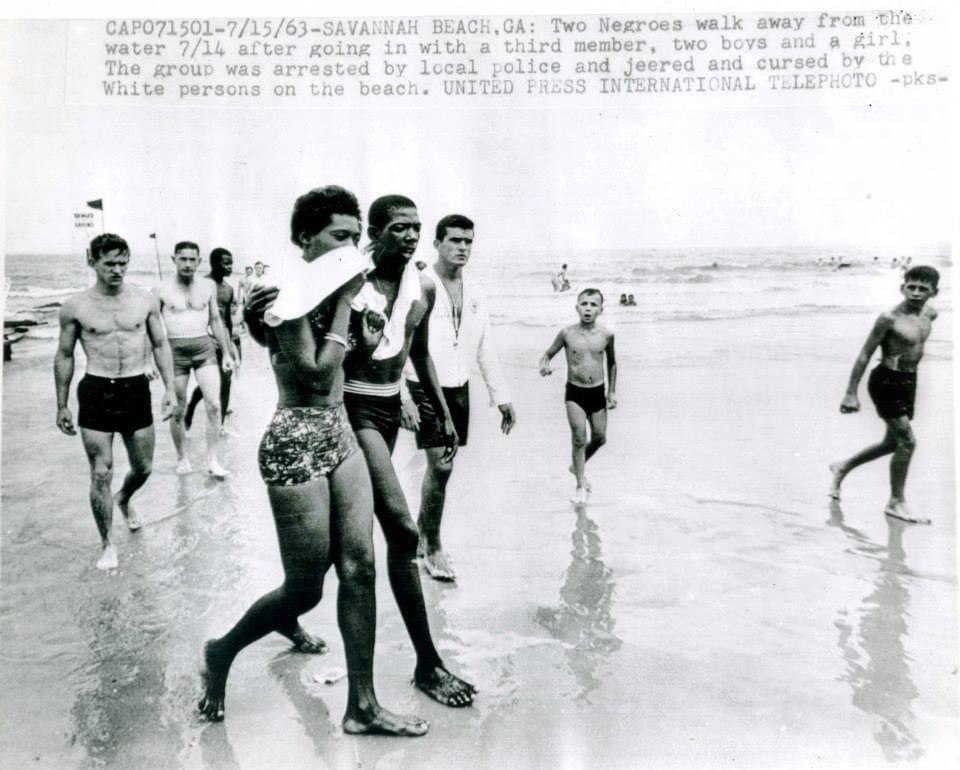Section Branding
Header Content
During A Summer Of Protest, Reflecting On Past Civil Rights Movements
Primary Content
The summer of 2020 looks like it will be a season of protest, as many across Georgia and the country call for an end to police brutality and structural racism. It’s far from the first season of protest and turmoil here. GPB’s Emily Jones produced this audio postcard for GPB's On Second Thought.Some veterans of the Civil Rights Movement of the 1960s see hope in today's protests over systemic racism. A look at protests past and present from Georgia's coast.
On a recent hot, sunny Friday, Diane Allman stood on the Tybee Island beach, watching her young kids play in the surf.
“Just this week, I've come to the beach three times," she said. "It's a good 45-minute drive for me. But they love the beach. They love the water here.”
Only a few decades ago, Allman would have had to drive all the way to the designated Black beaches on Hilton Head. Tybee was whites-only until 1964.
Edna Jackson was the first Black woman elected mayor of Savannah, in 2011. As a teenager in the 1960s, she helped desegregate the Tybee beaches.
“My grandmamma thought I was going over to Hilton Head to the beach because she knew I was going to the beach, but she didn't know I was going to Tybee,” Jackson said, recalling the wade-ins she joined.
“And the thing was, you would go out in your cars with your swimsuits on with something on top. You know, you’d just jump out and go to the water,” she said. “Some didn't get to the beach, and we were arrested. Now, I was arrested for disrobing in public, and I was one of the ones that had to stay overnight.”
She stayed overnight in the jail, that is. Jackson now has a brick from that jailhouse, given to her by the mayor when the building was torn down.
Every year, folks on Tybee remember the wade-in protests and celebrate Juneteenth with a wade-in of their own — in a big group, with public officials participating, and no police.
Diane Allman brought her children this year.
“It just felt like this was the year to speak up, and this was the year to celebrate,” she said. “I guess in a way, it's 2020 and it's a year of looking back and saying, 'Is it worth it'? Can I see, you know, do I see the efforts and the fruits of my ancestors' sacrifices for me? And, yeah, I do.”
And Allman’s kids have joined the current protests, in an online demonstration by and for kids.
Edna Jackson said today’s protests are part of the ongoing movement.
“They remind me so much when I was their age and how we wanted to affect change in this community," she said. “I call it a journey because it never ends. No matter how much you do and how much you have accomplished, I can walk out there in the street right now and someone may call me the n-word.”
Jackson said she’s especially struck by today’s leaders.
“The difference now than, than in the '60s is that it is not led by just African Americans. If you look, take pictures of all of the protests that are happening all over this world, it is a people’s protest, and that's what make it so good, because people can see the injustices that have taken place here,” she said. “But when I see it in my young people, in the young people here in this city, this city is about to change and change and change.”




